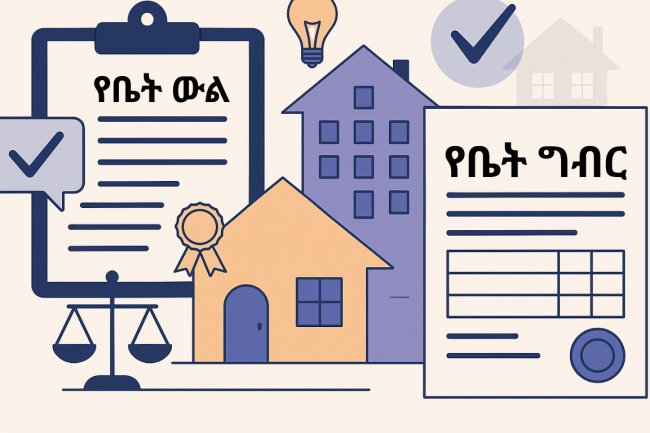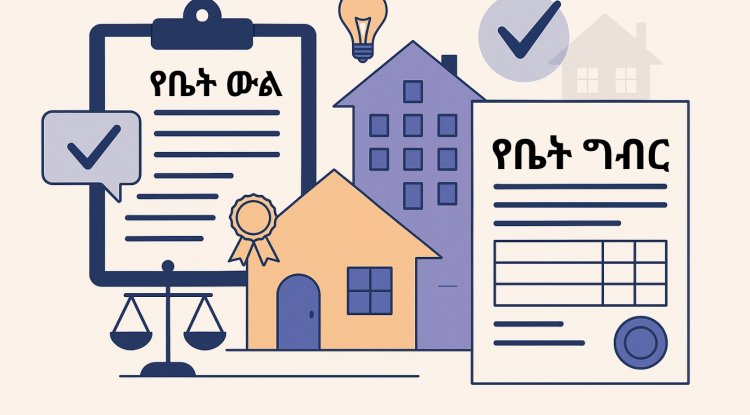Business vs. Personal Bank Accounts: Understanding Key Differences for Better Financial Decisions
This article explores the key differences between business and personal bank accounts, helping readers understand which type of account best suits their financial needs. It covers features, benefits, and considerations to make informed banking decisions. "Discover the essential differences between business and personal bank accounts. Learn about features, benefits, and how to choose the right account for your financial goals. Maximize your banking strategy today!"
Ethiopia's income tax system categorizes taxpayers into two main groups: residents and non-residents. Residents are subject to tax on their worldwide income, while non-residents are only taxed on income sourced from Ethiopia. The tax rate for businesses is a flat 35%, while individual income tax rates are progressive, ranging from 0% to 35%.
Having separate personal and business bank accounts is important for this system because it helps to distinguish between business and personal income. This distinction is crucial for accurate tax filing, as only business income is subject to business income tax.
Personal Bank Account
- Used for managing personal finances, like salary deposits, bill payments, and everyday purchases.
- Income from a personal bank account is generally not subject to business income tax.
- However, it may be subject to individual income tax depending on the source of the income. For instance, if you freelance and receive payments into your personal account, that income might be taxable.
Business Bank Account
- Used for managing business finances, including revenue from sales, vendor payments, and payroll.
- Income deposited into a business bank account is subject to business income tax in Ethiopia.
- Keeping business and personal finances separate helps with bookkeeping and tax filing. This makes it easier to track business income and expenses accurately, simplifying tax calculations.
Understanding Business and Personal Bank Accounts
When it comes to managing finances, choosing the right type of bank account is crucial. For individuals and entrepreneurs alike, understanding the differences between business and personal bank accounts can significantly impact financial management. This article will delve into the features, benefits, and considerations of each account type, helping you make an informed decision based on your specific needs.
What is a Personal Bank Account?
A personal bank account is designed for individual use. It allows you to deposit and withdraw money, manage expenses, and save for personal goals. Personal accounts come in various forms, including checking accounts, savings accounts, and money market accounts.
Features of Personal Bank Accounts
- Accessibility: Personal bank accounts offer easy access to funds through ATMs, online banking, and mobile apps.
- Low Fees: Many personal accounts have low or no monthly maintenance fees, especially if you maintain a minimum balance.
- Interest Earnings: Savings accounts may offer interest on your balance, allowing your money to grow over time.
- Debit and Credit Options: Personal accounts often come with debit cards for purchases and the option to apply for personal credit cards.
Example of a Personal Bank Account
Imagine Sarah, a freelance graphic designer. She opens a personal checking account with a local bank. This account allows her to receive payments from clients, pay her bills, and maintain a small savings for emergencies. Sarah enjoys the convenience of online banking, where she can track her expenses and transfer money between accounts with ease.
What is a Business Bank Account?
A business bank account, on the other hand, is specifically tailored for business operations. It allows companies to separate personal and business finances, facilitating better financial management and compliance with tax laws. Business accounts are essential for any business, whether it's a sole proprietorship, partnership, or corporation.
Features of Business Bank Accounts
- Business Transactions: Business accounts are designed to handle higher transaction volumes, including payments to suppliers, payroll, and client invoices.
- Separate Finances: Keeping business and personal finances separate is crucial for legal and tax purposes. A business account helps achieve this separation.
- Merchant Services: Many business accounts offer merchant services, allowing businesses to accept credit card payments and manage transactions more efficiently.
- Tax Benefits: Business accounts often provide access to tax-related features and services, making it easier to track deductible expenses.
Example of a Business Bank Account
Consider Mike, who runs a small bakery. He opens a business checking account to manage his bakery's finances. This account allows him to accept payments from customers, pay suppliers for ingredients, and handle payroll for his employees. By keeping his business transactions separate from his personal finances, Mike can easily track his business expenses and prepare for tax season.
Key Differences Between Business and Personal Bank Accounts
Understanding the key differences between business and personal bank accounts is essential for making the right choice. Here are some of the most significant distinctions:
1. Purpose and Usage
- Personal Bank Accounts: Primarily for individual use, personal accounts are suited for managing personal finances, savings, and everyday transactions.
- Business Bank Accounts: Designed for business activities, these accounts facilitate the management of business income and expenses.
2. Legal Requirements
- Personal Bank Accounts: Generally, anyone can open a personal account with minimal documentation.
- Business Bank Accounts: Opening a business account usually requires additional documentation, such as business licenses, tax identification numbers, and formation documents (like articles of incorporation).
3. Fees and Charges
- Personal Bank Accounts: Often have lower fees, and many banks offer free options based on account balance or activity.
- Business Bank Accounts: Typically have higher fees, especially if the account has a high volume of transactions or if the business requires additional services.
4. Tax Implications
- Personal Bank Accounts: Interest income from personal accounts is usually taxed at the individual’s tax rate.
- Business Bank Accounts: Income and expenses from a business account can directly affect the business’s tax filings, and having a dedicated account simplifies tax preparation.
5. Services Offered
- Personal Bank Accounts: May offer basic banking services such as checking, savings, and loans.
- Business Bank Accounts: Often come with additional services tailored for businesses, such as payroll processing, invoicing, and business credit cards.
-

Choosing the Right Account for Your Needs
When deciding whether to open a personal or business bank account, consider the following factors:
1. Nature of Your Activities
If you are an individual managing personal finances or freelance work, a personal account may be sufficient. However, if you operate a business, a dedicated business account is essential for effective financial management.
2. Volume of Transactions
For those with high transaction volumes, such as small business owners, a business account is better suited to handle the complexity and frequency of transactions.
3. Legal Considerations
If you are operating a registered business, it’s vital to have a business bank account to maintain compliance with legal and tax regulations.
4. Financial Management Needs
Consider how you plan to manage your finances. Business accounts often offer tools and services for expense tracking and reporting, which can be invaluable for business owners.
Common Misconceptions
1. "I Can Use My Personal Account for Business Transactions"
While it may be tempting to use a personal account for business purposes, this can lead to complications. Mixing personal and business finances can create challenges during tax season and may raise red flags with the IRS.
2. "Business Accounts Are Only for Large Companies"
Business bank accounts are essential for businesses of all sizes, including sole proprietorships and startups. Even if you operate a small business, having a separate account helps maintain professionalism and organization.
Conclusion
In summary, understanding the differences between business and personal bank accounts is vital for effective financial management. Personal accounts are suitable for individual use, while business accounts are tailored for business operations and compliance. By choosing the right account type, you can simplify your financial processes, maintain clear records, and focus on your personal or business goals.
Whether you are an individual managing personal finances or a business owner navigating the complexities of business transactions, selecting the appropriate account is a foundational step toward financial success. Take the time to evaluate your needs, consider the features and benefits of each type of account, and make an informed decision that aligns with your financial objectives.
please write me if you have any comment and quetion
- Accessibility: Personal bank accounts offer easy access to funds through ATMs, online banking, and mobile apps.















